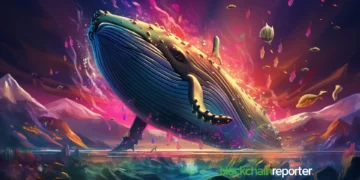BlockchainReporter recently sat down with Elias Haase, co-Founder of B9Lab to discuss blockchain education and the rapid growth and changes in the field.
According to LinkedIn, Blockchain developer was one of the most popular jobs in 2018, do you see this trend continuing?
Yes, our own internal data and the requests we receive seem to support that fact. It seems that now that the hype is dying down, the more serious projects are ramping up. We have seen some substantial investment in credible organisations over the past year which is now resulting in a talent shortage. We are also slowly seeing more corporate initiative for long-term projects targeting improved internal ledgerkeeping, more efficient compliance, and overall long term decrease of back-office cost. That is also driving the requests for developers for enterprise frameworks such as Corda and the Hyperledger suite of projects. Long-term, blockchain is set to both create new marketplaces as well as take over part of the enterprise stack, so we see the demand for blockchain developers as robust for the foreseeable future.
A number of schools such as New York University and the University of Tokyo have started offering blockchain courses. Do you feel that Universities are doing enough to keep up with the demand for developers?
Some universities have kicked off excellent programmes for executives and decision makers but we see that on the technical side they have less to offer. This is partially because it is very labour intensive to build and maintain educational material for the multitude of technical solutions out there. The technology moves at warp speed so the content is outdated very quickly if it is not updated regularly. Our biggest team is spending all their time creating and updating all the learning materials; we are lucky because this technical expertise informs our non-developer courses so we are able to quickly update our materials for executives and decision makers. For the moment, it is up to university-based learners to steer their own path in blockchain development.
What has been B9lab’s biggest challenge in furthering Blockchain education?
We spend a lot of time with bleeding-edge technologies that are often plagued by a lack of documentation. Our content experts spend a lot of time digging through source code and building viable learning paths. This can be challenging but it makes the outcome very rewarding both for the students as well as the team.
Have you found that certain regions are more enthusiastic about Blockchain education than others?
We have found that regions with a strong, well-educated developer base are the most enthusiastic about the technology, particularly the US, Canada, Europe, India, and parts of South-East Asia. However, other regions are certainly catching up, and there have been long-standing, excellent communities all over the world, from Kenya, South Africa, and Nigeria, to Ecuador, Brazil, and Chile.
We live in a bit of a DIY world where there are online tutorials for everything. In the case of blockchain, does face-to-face training create different outcomes than online training?
We have spent the past four years refining our teaching models in a way that maximises student success while still making the courses internationally available and affordable. We focus a lot of our energy on online one-to-one mentoring as well as hands-on exercises with personal instructor feedback. We found this to be a very effective approach. We have also developed an in-depth certification approach that translates what we learn about our best students into a trustable indicator for employers.
Through your organization, you interact with developers one-on-one and know their needs. What should the blockchain community do more or less of to promote blockchain education?
As blockchain is such a bleeding-edge technology, a lot of focus has been on getting it off the ground. We are now seeing an explosion in educational initiatives and increased investment. This can only be good for the community. However, we also want to be sure that development is done ethically and with governance issues in mind. With blockchain technology, it’s not enough to know how to do it, it’s also important to understand the consequences of what we’re building. I hope that stays an integral part of blockchain education.
You recently unveiled a new product, INSIGHT. Could you tell us a bit about that?
INSIGHT is our specialised subscription for non-developers. Designed to benefit a non-technical audience, B9lab INSIGHT courses are for anyone seeking a deeper, more nuanced understanding of blockchain technology. Each course focuses on a different business area, with the aim of enabling participants to make mission-critical decisions with confidence. The content is influenced by our technical team so it’s always being updated to reflect current thinking as far as possible.
Besides INSIGHT, what else does B9lab have in store for the year?
We have a whole range of new courses and initiatives coming in 2019. It is going to be an exciting year!
About B9lab
B9lab is the world’s leading provider of blockchain education and training, with a global learning community of more than 14,000 students in over 160 countries.
Founded in 2014, B9lab aims to demystify the field by helping decision-makers prepare for technological disruption and certifying developers to drive that change. Alongside providing blockchain education, B9lab also offers consultancy, advisory and talent services to help organisations find the best technological and professional fit for their blockchain projects.
B9lab has also worked with high-profile corporate clients including INTEL, Santander, and AMEX to bring blockchain to their businesses with hands-on workshops and online courses.























